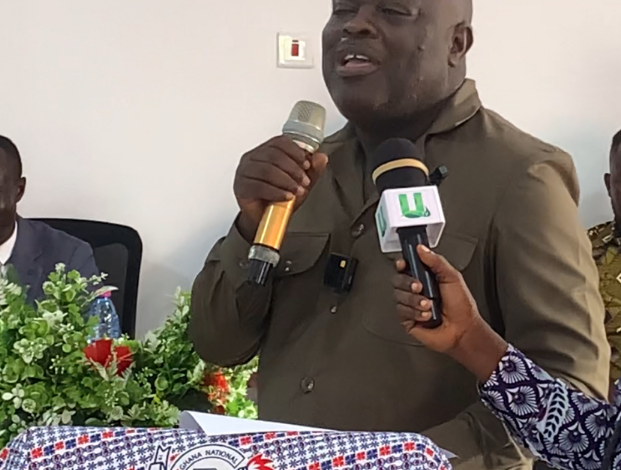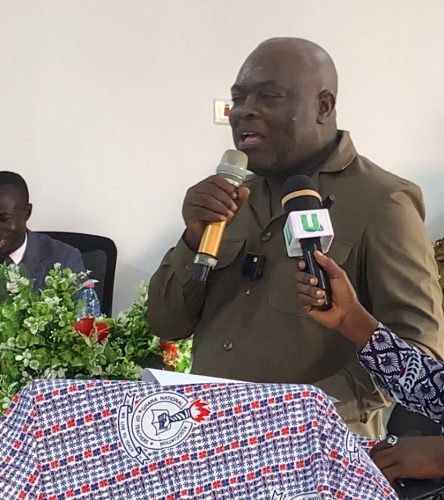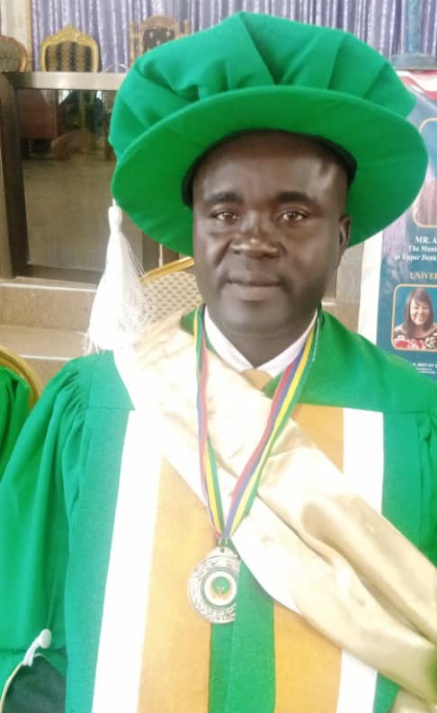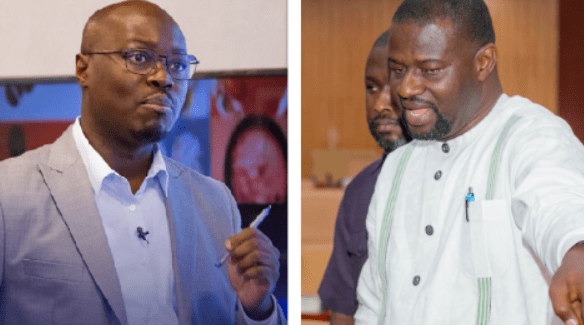THE SPEECH DELIVERED BY MR SETH BOATENG (REGIONAL GES DIRECTOR- WESTERN NORTH) ON THE TOPIC: GHANA EDUCATION SERVICE AT 50: ACHIEVEMENTS, TEACHER MOTIVATION, CHALLENGES AND THE WAY FORWARD AT THE 7TH QUADRENNIEL 54″TH BOSOME-FREHO DISTRICT GNAT CONFERENCE HELD ON MONDAY 26TH MAY 2025.


The Chairperson, Nananom, the District Director of Education, Distinguished
Executives of GNAT. And Other Teacher Unions Present, The Clergy, Friends
from the Media, Headteachers, Teachers, Dis tinguished Ladies and Gentlemen,
all other Protocols Observed.
Good morning. It is with great honour and a deep sense of purpose that I stand before
you today to reflect on the journey of the Ghana Education Service 50 years of
driving our nation’s educational mission, shaping minds, and transforming futures.
The Ghana Education Service (GES) was formally established in 1974 under the
National Redemption Council Decree (NRCD) 247, as part of the effort to
restructure and streamline the administration of education in Ghana. NRC Decree
247 was subsequently amended by NRC Decree 252, 357, and Supreme Military
Council (SMC) Decree 63. Under the current constitution, these earlier legislations
have been amended by Act of Parliament including Acts 506 of 1994, Acts 778 of
2008. Currently, Acts 1049 of 2020, provides for pre tertiary education system to
produce individuals with the requisite knowledge, skills and values to become
functional and productive citizens for national development. The Act also establishes
the Education Service and the Technical and Vocational Education and Training
Service and to provide for related matters
The Ghana Education Service (GES) as an agency under the Ministry of Education
is to inplement government policies on education and oversee the coordination and
supervision of pre-tertiary education across the country (Ministry of Education,
2018).
GES is now mandated to oversee basic education (kindergarten to junior high
school), secondary education and special education. Since its inception, GES has
played a pivotal role in implementing key national education reforms, including:
The Free Compulsory Universal Basic Education (FCUBE) program in 1995
The Capitation Grant introduced in 2005 to support free basic education
The Free Senior High School (Free SHS) policy initiated in 2017
The intro duction of the Standard-Based Curriculum in 2019 aimed at promoting
critical thinking and creativity among learners (NaCCA, 2020)
In addition, GES has worked alongside other statutory bodies such as the National
Teaching Council (NTC), the National Council for Curriculum and Assessment
(NaCCA), and the National Inspectorate Board (now National Schools Inspectorate
Authority) to ensure quality assurance and teacher professionalism in Ghana’s
education system.
Today, GES operates through a decentralized structure involving egional and
district level directorates, and continues to face challenges such as inadequate
infrastructure, disparities in rural education, and teacher motivation. However, its
contributions over the past five decades remnin central to Ghana’s progress toward
inclusive and equitable education,
Achievements of the Ghana Education Service
GES has made significant strides in increasing access, improving quality, and
promoting equity in education.
Access to education has expanded tremendously. Today, Ghana boasts a net
enrollment rate of over 90% at the primary level (UNESCO, 2023), Through the
Free Compulsory Universal Basic Education (FCUBE) policy and more recently the
Free Senior High School policy launched in 2017, Ghana has ensured that cconomic
status is no longer a barrier to secondary education (MOE, 2022).
The Free SHS policy has also ensure gender parity and has significantly improve
female enrolment and transition from the basic level secondary level.
Curriculum reforms have been another milestone. The introduction of the Standard-
Based Curriculum in 2019 is a clear step toward shifting focus from rote leaming to
critical thinking and creativity (NaCCA. 2020). GES has also embraced digitization
through e-learning platforms like Campus GH, especially during the COVID-19
pandemic, proving our system’s resilience in the face of adversity.
Teacher Motivation: A Mixed Journey
Teachers are the backbone of any education system, While GES has made efforts to
improve conditions for teachers through professional development, promotion
reforms, and the introduction of the Continuous Professional Development (CPD)
points system, much still needs to be done.
Many teachers feel demotivated due to delayed promotions, inadequate teaching
poor infrastructure (Acheampong & Adjei, 202 1), The National
Teaching Council’s licensing and CPD framework is a step in the right direction, but
and
resources,
it must be matched with corresponding incentives both financial and professional
The current government decision to promote teachers who have marked time on the
rank of Deputy Director to Director 2, which hitherto was an established rank is
highly commendable if implemented.
Challenges Facing GES
Despite the progress, the GES still grapples with significant challenges:
Infrastructure Deficits Over 5,000 schools still operate under trees or in temporary
structures (GNECC, 2022).
Teacher inequities – Rural and hard to reach areas continue to suffer from teacher
shortages and poor learning outcomes.
Assessment and Accountability –There is a need for a more robust data system to
track student prOgress and school performance.
Funding Constraints While the budget for education has increased, a significant
portion goes into salaries, leaving limited funds for development and innovation
(MoE, 2023)
The Way Forward
As we look ahead, we must reimagine the future of education in Ghana. Here are a
few strategic priorities:
Invest in Teacher Well-being: Beyond salaries, teachers need support in the form of
housing, career advancement opportunities, and mental health resources.
Strengthen School Leadership: Empowering headteachers and circuit supervisors
With training and resources wilI improve school perfomance.
Bridge the Urban-Rural Divide: Deploy incentives to attract qualified teachers to
rural areas and ensure all students have access to quality education, The call by
Teacher Unions and other stakeholders for a significant percentage of a teacher’s
salary to be paid as an allowance to teachers who accept postings to rural and hard
to reach communities and stay at post for a considerable period is a step in a right
direction.
Leverage Technology: Expand digital literacy and integrate ICT into the curriculum
and teacher training programs.
Enhance Accountability: Implement a data-driven performance system at all levels
from school to district ensuring transparency and measurable outcomes.
Conclusion
Ladies and Gentlemen, as we commemorate 50 years of the Ghana EducatİOn
Service, we celebrate not just the past, but also the pr omise of the future, Let us
honour the legacy of the GES not merely with words, but with action hat uplifts
teachers, transforms classrooms, and prepares our children for a plobal future.
As Nelson Mandela once said, “Education is the most powerful weapon which you
can use to change the world.” Let us wield it wisely, boldly, and inclusively.
Thank you, and may Ghana’s education sector grow from strength to strength.





